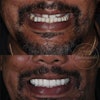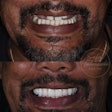
A Foster City, CA, dentist's lawsuit against an online reviewer has turned into a debate about amalgam, nitrous oxide, canceled appointments, and how they all relate to the First Amendment.
In court documents filed March 10, Tai Jing argues that the California Superior Court for Santa Clara County should dismiss the libel lawsuit that Yvonne Wong, D.D.S., brought against him because of his criticisms of her on Yelp.com. The U.S. Constitution protects the review because it's part of a public discussion of whether amalgam is safe, he wrote, adding that Dr. Wong has twisted his comments to imply a harsher criticism than he intended.
"In this case the government actually changed their position on silver amalgam safety in 2008," Jing wrote. "People should have the right to choose between 'safe' treatments, but can't choose if they are not aware of the alternatives."
The case has attracted widespread attention because few doctors have lashed back in court at any of the increasingly popular sites where users can rate them, along with hair salons, restaurants, and nearly every other type of service.
The case stems from a February 2006 visit in which Dr. Wong sedated Jing's son, then 4 years old, and placed an amalgam restoration. Afterward, Jing wrote, "I walked with my son into the parking lot and he vomited right next to my car. ... He continued to feel light-headed into the night."
Concerned about this reaction, the family switched to another dentist who didn't use nitrous oxide and who "went through the pros and cons of silver amalgam and other materials in detail," placing seven composite resin restorations.
Through Internet research, Jing concluded that "the FDA had reversed its position with regard to the safety of amalgam" and that nitrous oxide is "a gas that causes general anesthesia."
'Avoid her like a disease'
So on September 28, 2008, Jing posted a review of Dr. Wong on Yelp.com, writing that patients should "avoid her like a disease." Partly he was angry because "general anesthetic harms a kid's nerve system." But "the part that made me really, really angry" was that she used amalgam, which "has a small trace of mercury in it." He wrote that he also wished he had switched dentists earlier because "the new dentist discovered seven cavities. All right all of those appeared during the last half year."
In her own declaration, Dr. Wong wrote that she used nitrous oxide because of the boy's fear of needles. She wrote that this form of sedation is perfectly safe, that she obtained the verbal consent of the mother before using it, that she didn't see any "untoward effects of this anesthetic," and that she never heard any complaints about it from the family.
As for the filling material, Dr. Wong submitted to the court a copy of a signed consent form for the treatment, including a brochure that describes the pros and cons of amalgam and composites. It includes a statement that the FDA has found amalgam safe. Dr. Wong argues that there is "no genuine controversy" over using the material.
The only complaints she received from the family, Dr. Wong wrote, was when she declined to treat the boy on a Saturday and when she charged them for missing an appointment without canceling it in due time. (She later waived the charge.)
When she read Jing's review, she said, she felt sick to her stomach and had trouble sleeping. She protested to Yelp.com, which contacted Jing. Jing modified the review, leaving only the one-star rating -- the lowest possible -- and noting that another dentist in Dr. Wong's practice was "decent."
A Yelp.com representative also offered to sell her advertising on the site. Advertisers have the option of promoting a favorable review to the top position on the site, though they can't delete or edit unfavorable ones.
Feeling that her reputation had already been damaged and not wanting to buy into what she deemed a "protection racket," Dr. Wong filed the lawsuit against Yelp.com, Tai Jing, and his wife, Jia Ma. Dr. Wong's attorney, John Ter Beek of San Leandro, CA, has since dropped Yelp.com as a defendant because it is exempt from liability for its members' postings under the U.S. Communications Decency Act.
For his defense, Jing turned to the nonprofit California Anti-SLAPP Project (CASP), which took the case pro bono. CASP specializes in defending against defamation lawsuits that it considers attempts to suppress free speech by forcing the defendant to spend time and money in court.
Under a California statue, a judge can dismiss a strategic lawsuit against public participation (SLAPP) if it is unlikely to prevail. A judge will hear the case March 17.
Copyright © 2009 DrBicuspid.com


















